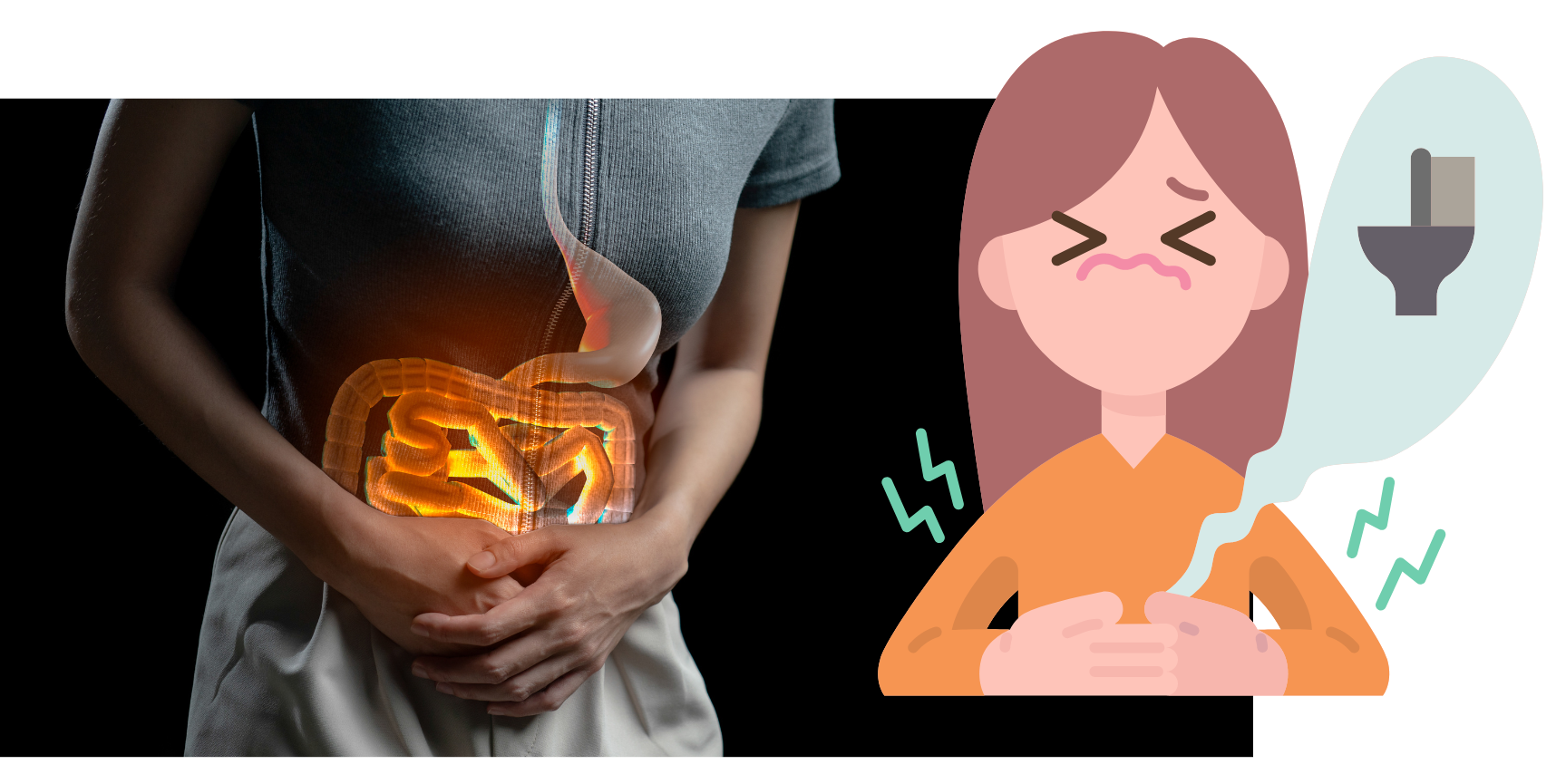Diarrhea

What is diarrhea?
Diarrhea is a common digestive problem characterized by loose, watery stools that occur three or more times per day. It is often accompanied by symptoms such as abdominal cramps, bloating, nausea, and dehydration.
Who's at risk for diarrhea?
Diarrhea can affect people of all ages, but certain groups may be more susceptible to the condition, such as:
- Young children, especially those in daycare or preschool settings
- Older adults, whose digestive systems may be less efficient
- People with weakened immune systems, such as those with HIV/AIDS or undergoing chemotherapy
- Travelers to developing countries, where sanitation and hygiene may be poor
What causes diarrhea?
Diarrhea can be caused by a range of factors, including:
- Viral, bacterial, or parasitic infections, such as norovirus, Salmonella, or Giardia
- Food intolerances or allergies, such as lactose intolerance or celiac disease
- Medications, such as antibiotics or laxatives
- Intestinal diseases or disorders, such as inflammatory bowel disease (IBD) or irritable bowel syndrome (IBS)
- Stress or anxiety
How does diarrhea start?
Diarrhea may start suddenly or gradually, and the onset and duration of symptoms may vary depending on the underlying cause. Infections, such as viral or bacterial gastroenteritis, may cause symptoms such as fever, vomiting, and diarrhea that begin within hours or days of exposure. Food intolerances or allergies may cause symptoms that develop over a longer period of time.
What are the symptoms of diarrhea?
The symptoms of diarrhea may include:
- Loose, watery stools
- Abdominal cramps and pain
- Bloating and gas
- Nausea and vomiting
- Dehydration, which can cause symptoms such as dry mouth, thirst, dizziness, and fatigue
How is diarrhea diagnosed?
Diagnosing diarrhea involves a combination of symptoms evaluation and laboratory tests. A healthcare provider may ask about the person's medical history and conduct a physical exam. They may also order stool tests, blood tests, or imaging tests to help identify the underlying cause of the diarrhea.
How can diarrhea be treated?
Treatment for diarrhea depends on the underlying cause and severity of symptoms. Mild cases of diarrhea may resolve on their own within a few days, with rest and hydration. Drinking plenty of fluids, such as water, sports drinks, or broths, can help replace lost fluids and prevent dehydration. Over-the-counter medications, such as loperamide, may be used to help control diarrhea symptoms. In some cases, antibiotics may be prescribed to treat bacterial infections.
What complications may occur with diarrhea?
If left untreated or poorly managed, diarrhea can lead to a range of complications, including:
- Dehydration, which can be life-threatening in severe cases
- Electrolyte imbalances, which can cause symptoms such as muscle cramps, weakness, and irregular heartbeat
- Malabsorption, which can lead to nutrient deficiencies and weight loss
- In severe cases, sepsis, a life-threatening complication of bacterial infections that can cause organ failure
How can I prevent diarrhea?
Preventing diarrhea involves practicing good hygiene and food safety habits, such as:
- Washing hands frequently with soap and water, especially before eating or preparing food
- Avoiding food or water that may be contaminated, such as raw or undercooked meat or seafood, or untreated water
- Getting vaccinated against diseases such as rotavirus or cholera, if traveling to areas where these diseases are common
- Avoiding close contact with people who are sick, especially those with diarrhea
What is recent research saying about diarrhea?
Recent research in diarrhea has focused on developing new treatments and therapies to improve symptoms and prevent complications. Some of the promising areas of research include:
- Probiotics, which are live microorganisms that may help restore the balance of gut bacteria and improve digestive health
- Fecal microbiota transplantation (FMT), which involves transferring stool from a healthy donor to the intestine of a person with diarrhea, with the aim of restoring the balance of gut bacteria and improving symptoms
- Novel therapies, such as antibiotics that target specific types of gut bacteria, or immunomodulatory agents that may help regulate the immune system and reduce inflammation in the intestine
Where can I go for more information on diarrhea?
If you or someone you know is experiencing diarrhea, it is important to seek help from a healthcare provider, especially if symptoms are severe or last for more than a few days. The following organizations also provide information and resources on diarrhea:

